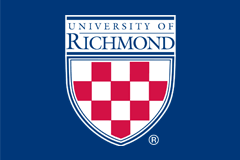Abstract
The freedom of speech protected by the First Amendment encompasses more than mere spoken words; it also protects conduct that has an expressive quality, such as flag burning.' In the important case of United States v. O'Brien, the United States Supreme Court appeared to narrow these sorts of protections in cases where there is a sufficient government interest in prosecuting actions, such as burning draft cards, and when such acts are noncommunicative. After the Supreme Court's recent holding in Rumsfeld v. Forum for Academic and Institutional Rights, Inc., the O'Brien holding's limitation on First Amendment protection for expressive conduct appears to be alive and well. In Rumsfeld, the Court held that an amendment conditioning the receipt of federal funds by law schools upon their acquiescence to military recruiters' presence on campus did not stifle the schools' First Amendment freedoms of speech and association- despite the schools' objections to the military's "don't ask, don't tell" policy under which it can discharge soldiers for being openly homosexual, and despite claims that allowing military recruiters equal access as other recruiters interfered with the schools' ability to express their objection to the arguably discriminatory practices of the military. Part II of this note examines the historical background of Rumsfeld v. Forum for Academic and Institutional Rights, Inc. Part III analyzes the unanimous opinion. Part IV examines the case's potential impact on First Amendment jurisprudence.
Recommended Citation
Braxton Williams,
Rumsfeld v. Forum for Academic and Institutional Rights, Inc.:By Allowing Military Recruiters on Campus, Are Law SchoolsAdvocating "Don't Ask, Don't Tell"?,
11
Rich. J.L. & Pub. Int.
107
(2007).
Available at:
https://scholarship.richmond.edu/jolpi/vol11/iss1/5
